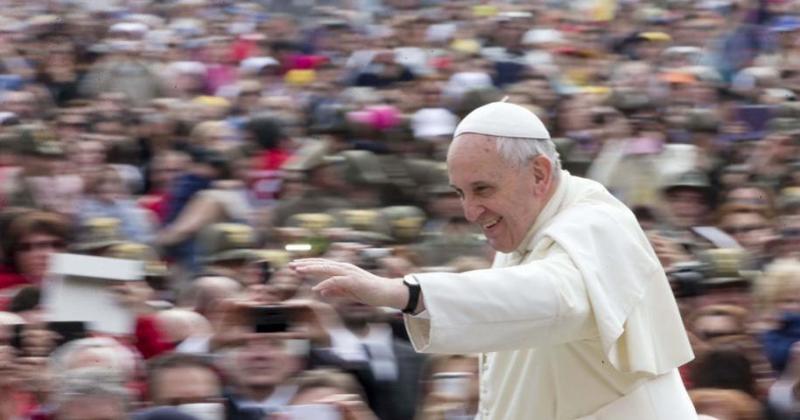On his forthcoming trip to the Albanian capital, Tirana, on Sunday 21 September, Pope Francis will meet with State and religious leaders, the local clergy and some children who are being cared for in various charity organisations. The Holy See Press Office has published the full schedule of the Pope’s one-day visit, during which he will give six speeches.
Francis will depart from Rome’s Fiumicino airport at 7:30 am (CET) and will arrive at Tirana’s “Mother Teresa” international airport at 9 am. Here. The Albanian Prime Minister Edi Rama will be there to welcome him. At 9:30 am there will be a welcome ceremony in the square in front of the Presidential Palace, after which the Pope will pay a courtesy visit to the President, Bujar Nishani in the “Green Study”. At 10 am Francis will have a meeting with the country’s political leaders and will deliver his first speech.
At 11:00am, the Pope will celebrate mass in in Mother Teresa Square and the Angelus prayer will follow after another brief speech. At 1:30 pm Francis will meet and lunch with Albanian bishops in the Apostolic Nunciature.
At 4:00pm the Pope will meet with leaders of other religions and Christian denominations at the Catholic University “Our Lady of Good Counsel”. At 5:00pm he will celebrate Vespers with priests, religious sisters and brothers, seminarians, and members of various lay movements at St. Paul’s Cathedral. At 6:30 pm he is due to meet with children from the “Centro Betania,” along with representatives from other charitable institutions of Albania. The Pope will give a speech on each of these three occasions.
The visit will conclude with a farewell ceremony at Mother Teresa airport at 7:45pm. He will depart for Rome at 8 pm and is scheduled to arrive at Rome’s Ciampino airport at 9:30 pm.
The Albanian Church is grateful for the Pope’s visit, the Archbishop of Tirana, Mgr. Rrok Mirdita, told Vatican Radio.
“It is thanks to our Church’s communion with the successor of Peter and our loyalty towards him that our people have experienced the feeling of belonging to the universal Church, even when the successor of Peter and the universal Church were considered to be enemies of the nation. I am thinking of the persecution during the regime of Communist dictator Enver Hoxha brought Albania's religions closer together,” the archbishop underlined. “ Now it is the successor of Peter who is turning his attention toward us and is coming to visit us to confirm us in the faith and pay tribute to Catholic martyrdom and suffering and not only. The Albanian Church awaits his arrival with joy and affection but other religions and non-believers also deeply esteem and respect him.”
Mirdita recalls that persecution during the communist regime strengthened the bonds between religions and the four main communities (Sunni Muslims, Orthodox, Catholics and Bektashi Muslims) cohabit peacefuly. "Some suggested that sectarian tensions would follow on the fall of Communism, but that didn't happen," he said.
Twenty one years after John Paul II visited Albania, the Archbishop of Tirana recalls that his visit was like a loving caress on the tortured body of a martyr Church. It brought light to the entire nation. He rebuilt the Church hierarchy and consecrated the first four bishops.” Now, he continued, "society has changed a lot, but some challenges remain the same, like corruption, poverty, unemployment, organized crime and justice.”
